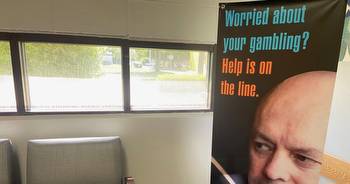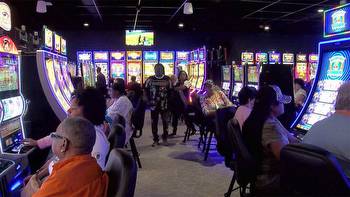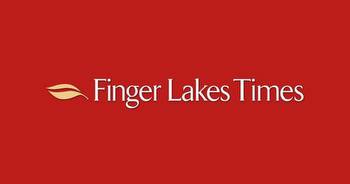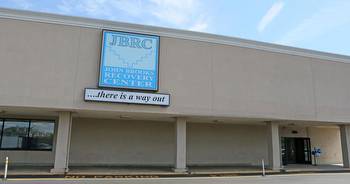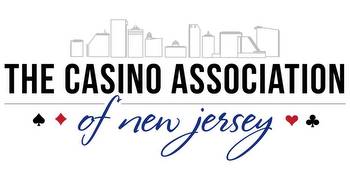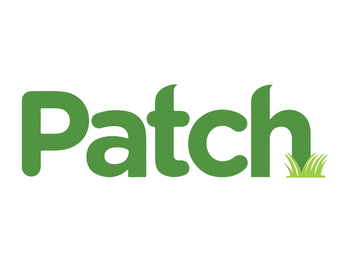Arkansas Problem Gambling Council will work as state racing commission’s treatment provider for Arkansans with gambling disorders

The Arkansas Problem Gambling Council will start work as the Arkansas Racing Commission's provider of educational and treatment services for Arkansans with gambling disorders next week, nearly four years after voters approved a constitutional amendment requiring the commission to provide at least $200,000 a year for gambling disorder and treatment programs.
The council's $200,000 contract with the racing commission begins Tuesday and runs through Oct. 31, 2023. By mutual agreement, the contract may be renewed up to six additional one-year terms.
State officials awarded the contract to the Arkansas Problem Gambling Council because of the organization's statewide relationships with mental health professionals along with its work with the National Council on Problem Gambling, said Department of Finance and Administration spokesman Scott Hardin.
"This will meet Amendment 100's intent to provide problem gambling education and treatment," he said Thursday.
Amendment 100 to the Arkansas Constitution -- approved by voters in November 2018 -- authorized the Arkansas Racing Commission to license four full-fledged casinos, which the commission has done. Three casinos operate in Hot Springs, Pine Bluff and West Memphis, while the licensed casino in Russellville hasn't been constructed yet.
Hardin said the Arkansas Problem Gambling Council and Harbor House were the only groups to respond to a state request for proposals for providers of educational and treatment services for Arkansans with gambling disorders.
Vena Schexnayder, who is currently the chairwoman of the council's board and will become the council's executive director next week, said Thursday, "I am excited and hopeful for the new services and treatment opportunities for all Arkansans."
The council will subcontract with Arisa Health Mid-South to provide counseling and treatment services in northeast Arkansas, the Centers for Youth and Families to provide services in Central Arkansas, Exodus Life to provide services in south Arkansas, and Arisa Health Ozark Guidance to provide services in Northwest Arkansas, she said.
Forty-two other states reported publicly funded problem-gambling services in 2021, according to a National Council on Problem Gambling report in July.
The Arkansas Scholarship Lottery provides funding each year to the the Louisiana Association on Compulsive Gambling to answer calls to the Arkansas Problem Gambling Helpline and to receive monthly reports about the calls, according to Hardin.
National Council on Problem Gambling Executive Director Keith Whyte has said Southland Casino Racing has been a generous donor to the National Council on Problem Gambling through its parent company Delaware North, and Oaklawn Racing & Gaming has been a generous donor to the National Helpline. Carlton Saffa, chief market officer for Saracen Casino Resort in Pine Bluff, has said casino officials made a decision to join at the gold level directly from Saracen to help support the National Helpline.
On Dec. 17, the Legislative Council approved Gov. Asa Hutchinson's request to use $200,000 from the state's rainy-day fund for the problem gambling programs.
Hutchinson asked for the rainy-day transfer in a Dec. 2 letter to finance department Secretary Larry Walther, who forwarded the request Dec. 3 to a legislative panel's co-chairs Sen. Jonathan Dismang, R-Searcy, and Rep. Michelle Gray, R-Melbourne.
The governor's letter requesting the fund transfer came after a lawsuit was filed Dec. 1 by the Denton & Zachary firm of Little Rock, representing plaintiff FaNeisha Yavette Mosley, against the Arkansas Racing Commission and its director John Campbell as well as Walther.
In December, Hardin said the lawsuit was in no way related to the decision to seek the rainy-day funds for the problem gambling programs.
General revenue included in the Racing Commission's budget will be used to fund the programs in subsequent years, he has said.
In the fiscal session earlier this year, the Legislature authorized $200,000 for the programs to be funded through the state's Revenue Stabilization Act that prioritizes the distribution of state general revenue to state-supported programs in fiscal 2023.
On July 24, the Denton & Zachary firm filed an amended complaint against the Racing Commission, Campbell and Walther. Among other things, the amended complaint asks Pulaski County Circuit Judge Mackie Pierce to order the defendants to provide at least $200,000 a year for compulsive gambling disorder and educational programs in the future, and be required to provide restitution compensating, reimbursing, rewarding and paying the funds for these programs of at least $2000,000 for 2019, 2020 and 2021.
Attorneys for the Racing Commission, Campbell and Walther have asked the judge to dismiss the complaint.
Before voter approval of Amendment 100 in 2018, Nate Steel, a counsel for the Arkansas Driving Forward committee that promoted the proposal, said that constitutional provision requiring at least $200,000 for the problem-gambling programs was intended as a minimum to replace the funding the Legislature cut for these programs in 2015.
In 2015, Hutchinson signed legislation to eliminate the Arkansas Scholarship Lottery's $200,000-a-year contribution to the compulsive gambling treatment and education programs, thus increasing the amount of money available for scholarships.
That measure, sponsored by Sen. Alan Clark, R-Lonsdale, also reduced the lottery's payments to the then-Department of Higher Education for administering the lottery-financed Arkansas Academic Challenge Scholarship program to "only direct expenditures of the department to administer scholarship funding." At that time, Clark said he expected the law would raise at least $600,000 more per year for the lottery scholarship program.










